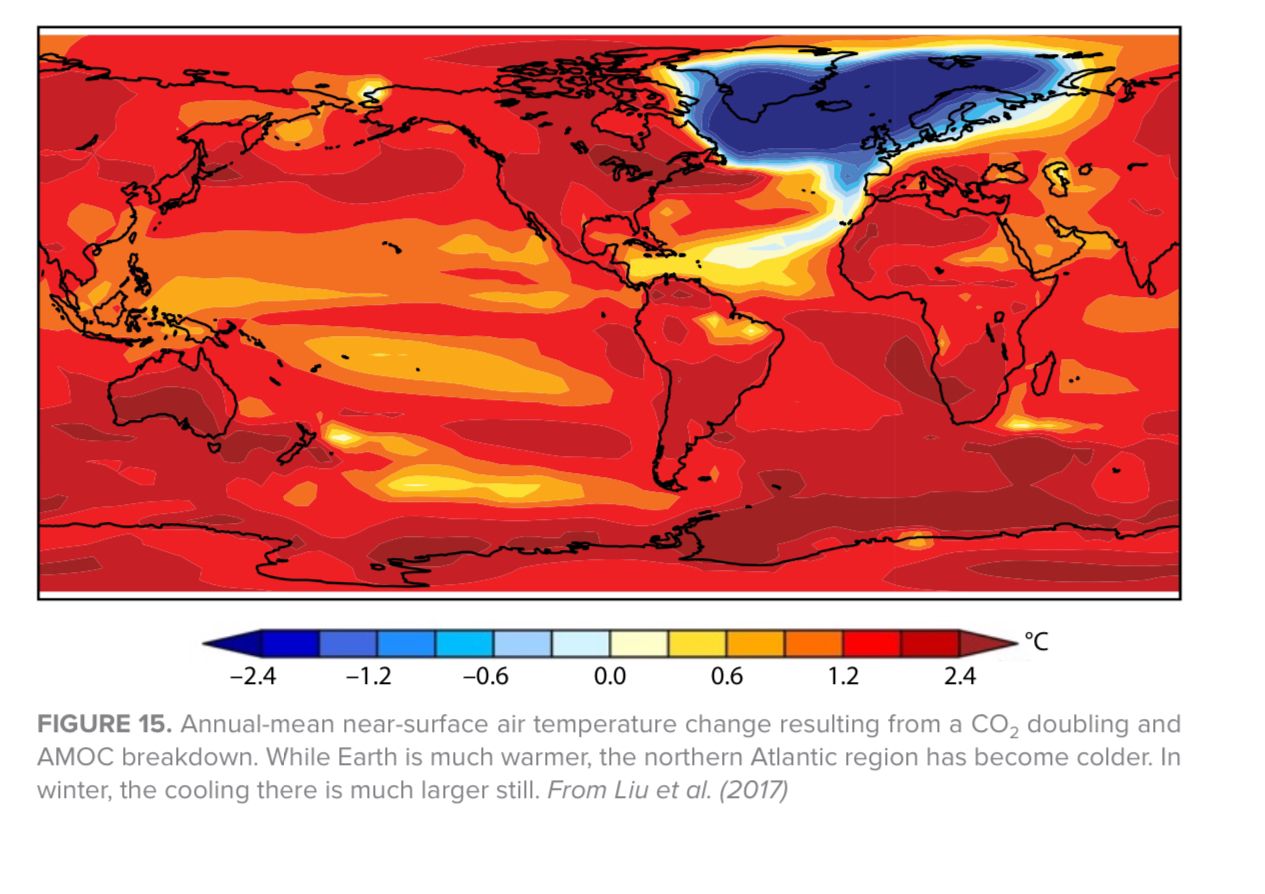
In recent months, we have been inundated with news about what is coming, or rather, Imminent relief from Gulf Stream.And there will also be Date 2025Some people think that overcooling from Scandinavian countries Happened in cold semester It could be warningI decided to deepen my research by consulting reliable sources where I found conflicting information.There is no certainty in the forecast, but there is a high probability. change in effect with dire consequences. European winter climateAnd more.
Today I present to you a copy of a scientific article that appeared in www.whoi.edu/oceanus/
Although sensational headlines have recently suggested that the Gulf Stream It can stop within a few years or decades, causing a catastrophic change in the global climateoceanographers Woods Hole Oceanographic Institution (WHOI) They say this is not the case. It will continue to flow.
These worrying forecasts arise from the oversimplification of current systems. that affect global climate. Many people confuse a more complex system known as South Atlantic Meridional Circulation (AMOC)As Robert Todd, a physical oceanographer at WHOI, explains, it is part of the AMOC, but also distinct from it. It is just one arm of a multi-level system that distributes water horizontally and vertically inAtlantic Ocean.
It flows along the east coast of north americacarries hot water from Florida Strait until Major banks outside NewfoundlandThen continue as is. North Atlantic Current TowardsEuropeThese currents transport heat from the tropics to higher latitudes, and are responsible for the temperate climates that characterize most parts of the world.
Lateral movements of upper ocean currents It is the result of large planetary winds and the rotation of the Earth. Winds blow from west to east in temperate zones, and from east to west in the tropics, pushing water toward the center of the ocean basin. This, combined with the rotation of the Earth, causes the water to move clockwise: north, then east, south into the ocean, and west. North Equatorial Current To tropical latitudes.
When the hot water is transferred to and from subarctic regionsloses heat and becomes cooler and denser. This water then sinks and returns south, creating a vertical circulation throughout the entire ocean basin, different from the horizontal movement of the upper currents. Part of the southerly flow flows alongWestern Atlanticunder; another part flows along Mid-Atlantic Ridge.
Together, this combination of surface and deep water currents makes up the AMOC. This is where the confusion arises.
Recent studies have shown that the temperature of the Arctic is rising. It can lead to fresh water flow resulting from fExploitation of Greenland’s glaciersIt is possible, but not certain, that this influx of fresh water could disrupt the formation of deep water, and thus the AMOC. If the seawater becomes soft enough, the cooling causes it to turn to ice (which floats) before it becomes dense enough to sink. Large amounts of fresh water can prevent surface water from sinking, preventing those deep currents from the AMOC. There is evidence that this has happened in the past, leading to rapid global climate change.
Scientists agree that the AMOC is likely to slow down over the next century.However, there is evidence that the slowdown may already have begun. It is unclear whether the observed changes are due to climate change or natural variations from year to year. A sudden ban, as some articles have speculated, is much less certain.
However, even if the deep part of the AMOC were to stop, it would continue to flow. As MIT professor Carl Wünsch noted in 2004, “The only way to produce ocean circulation without it is to either stop the wind system, stop the Earth’s rotation, or both.” None of these scenarios will happen, even under the most extreme climate change scenarios.
“It’s not going to stop, but it’s not immune to climate change,” Todd says. She’s collected data showing that the current is heating up and moving closer to shore, which could expose marine life to sudden temperature spikes and have profound effects on fisheries. The speed at which it carries water may also change. But it will always flow.





Leave a Reply